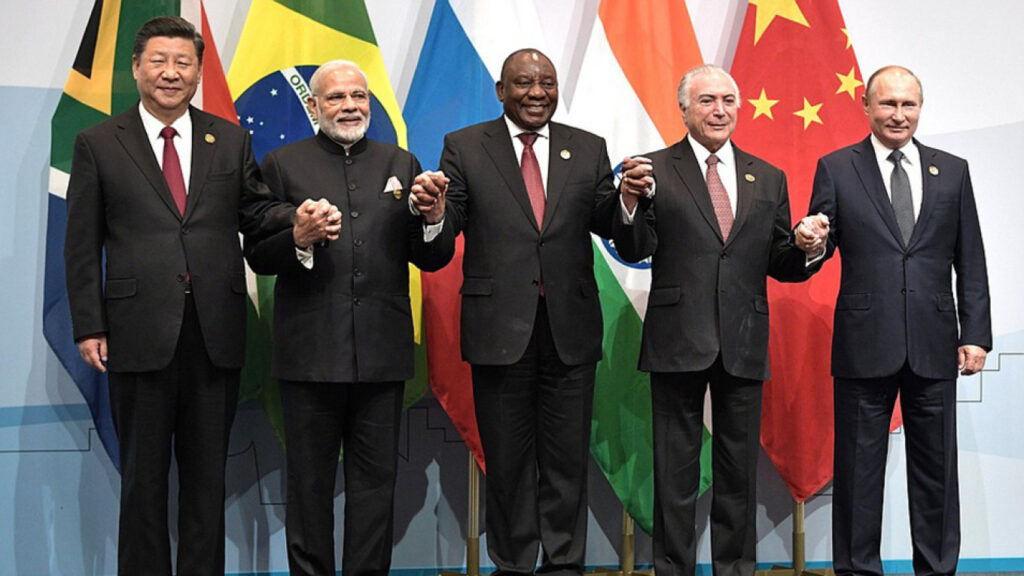In recent years, the international stage has witnessed a geopolitical shift as the BRICS club, composed of Brazil, Russia, India, China, and South Africa. This grouping of major rising economies, initially known as ‘BRIC’ before the addition of South Africa, formed a coalition that challenged the status quo of Western-led world politics and economics; BRICS was seen as a gathering of nations aiming to reshape the global balance of power.
The recent announcement of the BRICS club’s expansion to include six new nations has left some bemused while others are applauding with enthusiasm. Chinese President Xi Jinping hailed it as “historic” but as we dive into the details, the extent of these countries’ common interests within BRICS remains a subject of inquiry. As President Xi addressed the leaders gathered in Johannesburg, he painted a picture of BRICS’ growth as a force for world peace and development. It’s like adding extra toppings to a pizza: it might not satisfy everyone, but it sure makes it more riveting. The original BRICS members–Brazil, Russia, India, China, and South Africa–have often been seen as a band of renegades challenging the Western-led world.
As of now, six new countries–Argentina, Egypt, Iran, Ethiopia, Saudi Arabia, and the United Arab Emirates–are keen to be part of the club by early January 2024. China, with all its might, was the driving force behind this expansion. It’s as if they are trying to create a parallel universe where Western dominance utterly doesn’t exist. But what will this alternative world order look like in our status quo? Professor Steve Tsang from London’s SOAS China Institute suggests that the alternative world would be a palace where autocrats can feel cozy in their political armchairs, sipping tea without the nagging influence of the democratic Americans and European powers. The host of this gathering, South African President Cyril Ramaphosa, was enlightened as he proudly announced the newcomers: “We value the interest of other countries in building a partnership with BRICS,” he declared as if BRICS were a popular nightclub and these countries were eager to get on the guest list.
But here’s where it gets interesting. While the invitation to join Brics was on the table, there was debate among the core members about the guest list. A leaders’ press conference was scheduled to reveal the new additions, but like any good plot twist, it was suddenly canceled.
Brazil’s President Luiz Inácio Lula Da Silva was a no-show at the leadership dinner and then came the late-night press conference advisory, only for it to be delayed again.
Vladimir Putin, the man who never misses a chance to aim for Western powers, joined the party via video link from Russia. He warned against the dangers of “neo-liberalism” and its threat to traditional values and the emergence of a multi-polar world, and his claims indirectly addressed the United States and its policies.
On the other side of the globe, White House National Security Advisor Jake Sullivan tried to downplay the expansion, emphasizing the divergence of views among BRICS members.
Among the new members, there’s no clear anti-American sentiment, according to Sarang Shidore from the Quincy Institute in Washington. In the end, this expansion might not mark a revolution but rather a diplomatic soirée filled with some give and take. It’s a window into a future where diverse nations congregate on one platform with varied interests and backgrounds. It prompts us to ponder a more important query: Will this expanded BRICS forum become a stepping stone toward a more multipolar world or a mere moment in history?

